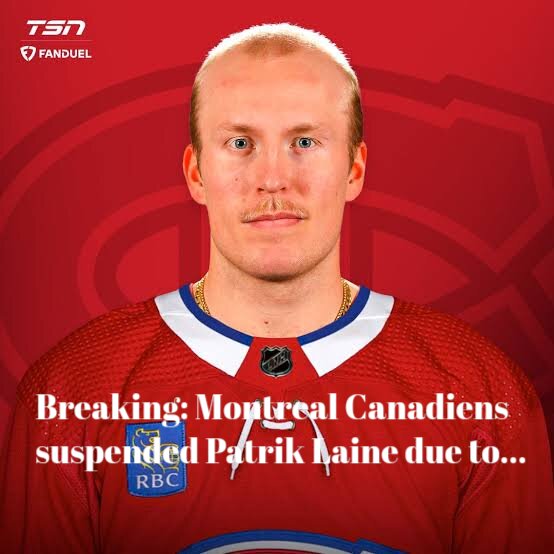Patrik Laine sat in a quiet corner of the arena, the faint echo of skates on ice in the background. The adrenaline from the game had faded, leaving behind a heavy silence. It was post-game, and the usual buzz of reporters had dissipated, but one persistent journalist remained, hoping to capture something real from the star player.
“Why don’t you ever smile when things get tough?” the journalist asked, his voice breaking the stillness.
Patrik paused, his brow furrowing as he searched for the right words. He often felt like he had to wear a mask on the ice—one of confidence, strength, and joy. But in moments of struggle, that mask slipped. “It’s not that I don’t want to smile,” he began slowly. “It’s just… when I’m in distress, it feels almost impossible.”
He leaned back, reflecting on his journey. Growing up in Finland, he had been taught to handle adversity with stoicism. His father had instilled in him the importance of resilience, often saying, “A man’s strength is measured by how he handles the tough times.” But Patrik had learned that strength didn’t always manifest in smiles.
“I think part of it is fear,” he admitted, looking out at the empty ice rink. “Fear that if I smile, it means I’m not taking things seriously. I don’t want to seem weak in front of my teammates or fans.”
The journalist nodded, understanding the pressure that came with being in the spotlight. Patrik continued, “Sometimes, when I’m struggling, I feel like I’m letting everyone down. So instead of smiling, I bury myself in work, hoping that my performance will speak for me.”
His honesty hung in the air, a stark contrast to the bravado often displayed by athletes. Patrik revealed that there were nights he lay awake, replaying missed opportunities and wondering if he was truly living up to expectations. “In those moments, a smile feels like a betrayal to the struggle I’m facing.”
The journalist, moved by Patrik’s vulnerability, realized that this was a story not just about hockey, but about the human experience. It was about the battle within, the challenge of balancing public persona with private feelings.
As Patrik wrapped up, he added, “I’m learning that it’s okay to show my emotions. It doesn’t make me any less of a player. Maybe one day, when I find that balance, I can smile even when things are tough.”
With that, he stood, a hint of determination in his eyes. The journalist knew he had something special—an insight into a player who was not just a talent on the ice, but a person navigating the complexities of life off it. As Patrik walked away, the empty rink felt a little brighter, and the weight of his struggles, a little lighter.
